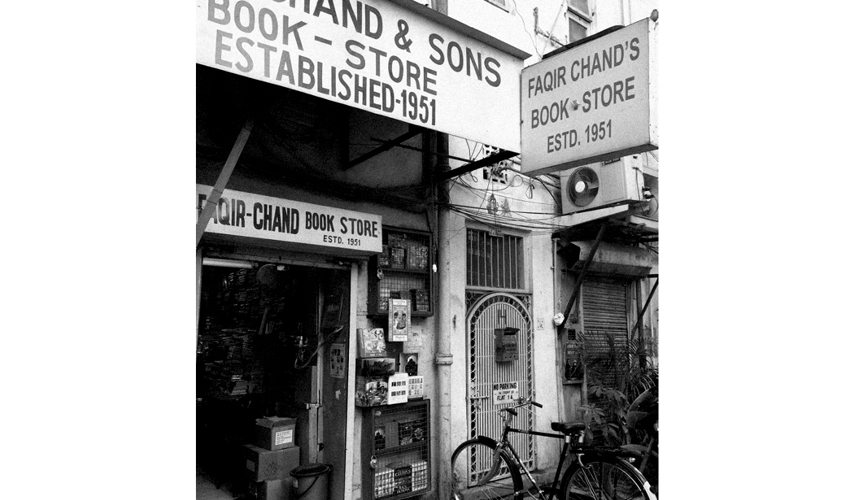You’d be surprised to learn of the bookstores that, quite valiantly, confront the parallel internet book sellers market, by not linking with any website at all for their sales. They are few in number, agreed, but their stories are remarkable, much like the fiction that they stack on their wooden shelves. Balraj Bahri started Bahrisons in the year 1953, when he had to shift to Delhi post India’s partition. “In the unsettling climate of the time, he did a few odd jobs — he worked at a pen store. After that he became a teacher.” Anuj Bahri, as he narrates the tale of his father, continues, “Well, he was the sort of man who wanted to do something with his life. So, he went on to start this store.” Bahrisons is a bookstore that deals in a panoramic variety of contemporary works of fiction, and some important titles under non-fiction. Anuj Bahri has been heading the enterprise since 1979 and has seen generations of readers. The establishment houses over 110 thousand titles, all single copies, while the remaining copies are stacked up in warehouses.

Generations of readers and buyers also visit a store located a few shops down the same path where Bahrisons is situated. Faqir Chand & Sons, where I found, young and genial, Abhinav Bamhi, has its own long adventure to share. Faqir Chand, who is Abhinav Bamhi’s great-grandfather, started the store in 1951. “He already had a store in Peshawar, which was established in 1931, but had to relocate after the partition. This bookstore happens to be the first store to have started at Khan Market,” shares Abhinav Bamhi. Like Bahrisons, this store is compact, well lit by tubes, and is full to the very brim with books — the columns of books on either side create an isle that is narrow enough for just one person to walk up and down at a time. Their store has a permanent clientele, Abhinav Bamhi informs me, “Just before you stepped in we had an old gentleman who brought in his grandchildren to show them the store, he told them about how he would come here to buy books with his father as a child.” This only adds to the charm of the store. Faqir Chand & Sons also deals in a wide variety of fiction along with specific genres within non-fiction: namely biography, political history, business.
“We’ve had many of them visit for signings. The last we had over was William Dalrymple, he was signing copies of ‘Kohinoor’.”
Books in themselves are a cosmos, which take form once the words are placed on the page. Writing started with the ink being put onto a page, it gradually went onto typewriters (which are used still, by many, — apparently there is a feel to the whole act of using a typewriter while writing), and now we have writers who type works on laptops or even
There is another consequence to the whole shift — what does one do when one wishes to see their favorite author sign their copy? I mean, it’s oddly funny to imagine your favorite author use a stylus to sign your e-copy of their work, and, that too, over a skype chat. Bookstores help carry on this tradition. Midland bookshop was started in 1958 by Yaseem Mirza Beg, who was the only one to supply books to the Indian Coffee House back 1950s when it was the political and cultural hub for politicians, intellectuals, journalists, musicians and artists. Midland, currently located in South Ex market, is run by Yaseem’s son, Asad Beg, and he tells about the authors that keep visiting for signing and seeing their books, “We’ve had many of them visit for signings. The last we had over was William Dalrymple, he was signing copies of Kohinoor.” Similar are the cases of Bahrisons and Faqir Chand & Sons.

There is a very interesting point that Anuj Bahri, of Bahrisons, raises in his conversation, “Amazon has been maintaining a strong online presence with its physical books sales and its electronic format sales, but, if anyone has paid attention to their recent activity, you’d learn that they’ve opened five book stores, the first one being in Seattle. Now, why would an online book store do such a thing? Makes you wonder.” And it does make one wonder as to why one of the biggest online book sellers would open five bookstores along with plans for many more in place. Is this a realisation that the traditions of book reading, buying, visiting stores, talks and signings with authors, are all too firmly rooted and indispensible?

